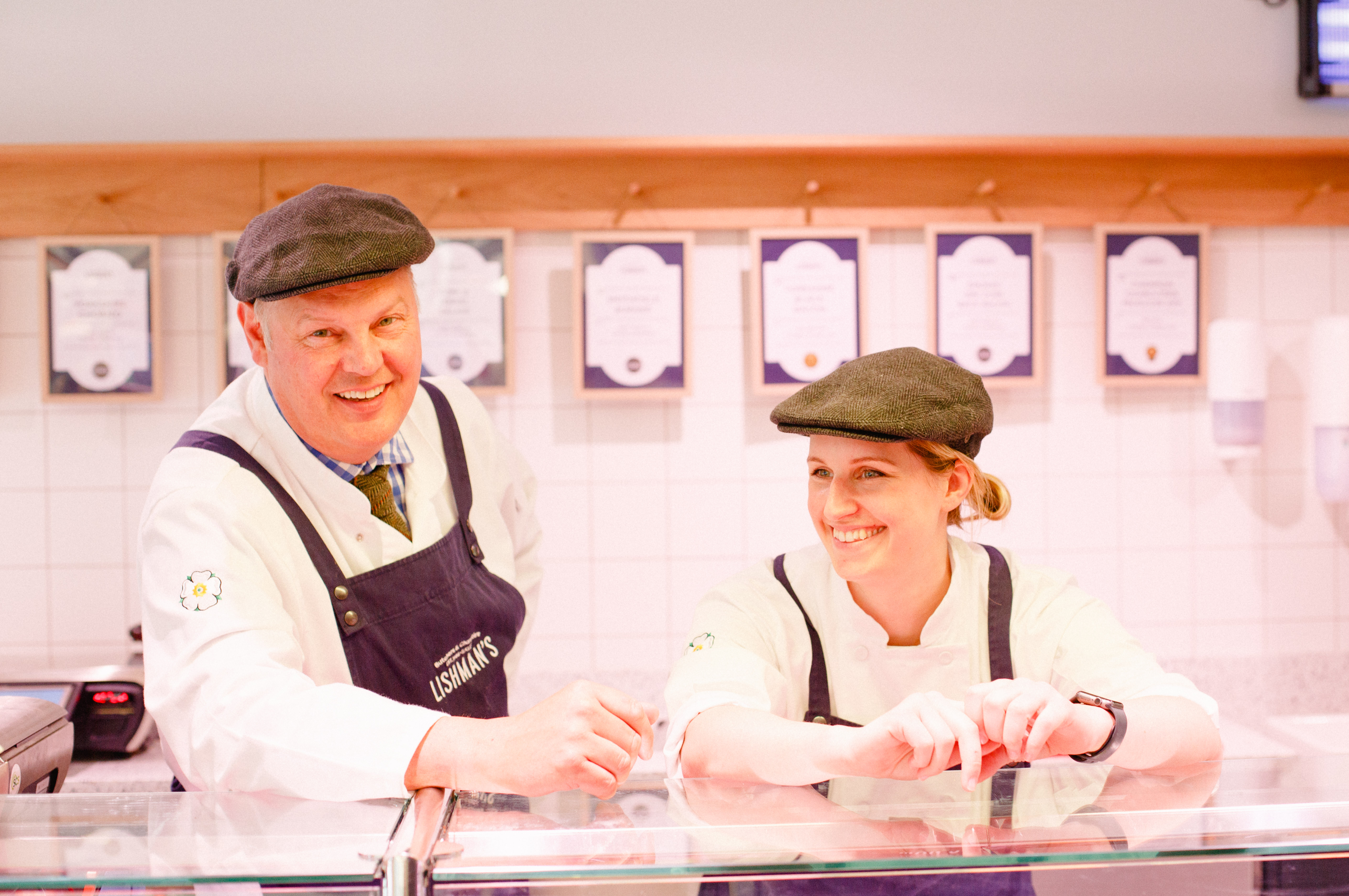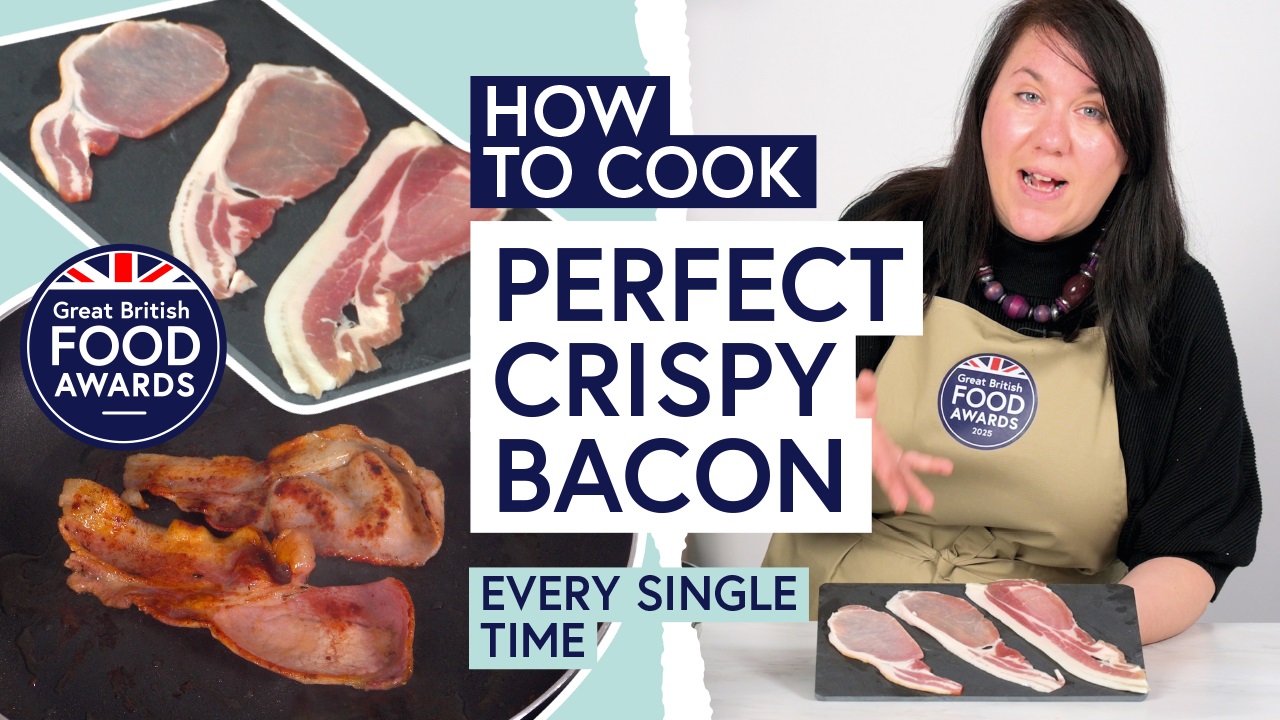Britain’s butchery and meats are revered globally. And rightly so. From Scotland’s spice-laden haggis, to Wales’ incomparable mountain lamb, and East Anglia’s phenomenal outdoor-reared pork – there's a lot to celebrate. That’s without mentioning our nation’s sensational sausages, conjured in myriad flavours and proudly displayed in links, front and centre of every counter.
Let’s pay homage to some of the very best you’ll find on your foodie travels.
Lishman’s, Ilkley, Yorkshire
This recently renovated Yorkshire shop has been designed to give customers a front seat, witnessing the skill, precision and theatre of the art of craft butchery.
Originally founded by David Lishman in 1986, it’s now a family affair, as David’s daughter Emma has joined him – both sharing a passion for demonstrating the superior quality of high welfare, traditionally-reared British meat.
Lishman’s has many feathers in its cap that have put it firmly on the awards map. The shop’s slow-grown heritage beef (including Hereford and Aberdeen Angus reared in Cumbria), is aged for 28 days in Himalayan salt chambers to coax out its very special flavour (the steaks are incredible).
The team have a reputation for their hot roast pork sandwiches, relished by locals, and revered for pairing tender slivers of eat with oodles of crispy crackling.
Then there’s Lishman’s own charcuterie, made with precision and great attention to detail using carefully chosen cuts of Yorkshire pork. The Pork & Fennel Salami is a customer favourite, alongside Yorkshire Nduja, and Air-Dried York Ham, which they think rivals the finest Italian prosciutto. “Charcuterie is something we’re truly passionate about,” says Emma. “It not only allows us to honour the whole animal, but also showcases the incredible depth of flavour found in the Yorkshire pigs we work with.”

Reuben’s Butcher, Deli & Bottle Shop, Melton, Suffolk
Chef Harry Woolf-Evans had a hard task on his hands when he took on what was an established, traditional village butchery, changing the name, and transforming it beyond recognition.
However, not only did existing customers embrace the changes, but a whole new generation of shoppers is stopping at Reuben’s, buoyed by the exciting, eclectic offering, spanning locally sourced, ethically reared meat, quirky handmade deli counter produce, and evolving shelves crammed with carefully chosen epicurean goodies.
“The first thing that separates us from most other butchers is that we’re predominantly a team of cooks and chefs,” says Harry. “So, we’re approaching butchery from a chef’s point of view, which means we leave behind the ‘old school’ method of thinking it’s all about yield. By that we mean they wouldn’t take in fatty cuts, but we think fat is flavour and we champion that. We want as much fat as possible on our beef and pork chops.”
A second point of difference is that the team prepares everything from a cook’s perspective. Each piece of meat is cut and trimmed with purpose. “We prepare joints further than most butchers would,” says Harry. “So lamb racks would be trimmed and prepped with garlic and rosemary, ready to pop in the oven.”
Introducing a dry ager has proved a hit with home cooks too. “The first thing we put in there was some Dingley Dell pork, and we had customers saying it’s like nothing they’ve tasted before. The crackling was incredible because it was so dry. That’s become so popular because people can come in, buy a piece of meat and watch it age.”
Alongside Suffolk pork, the butchery stocks free-range Sutton Hoo chickens, which forage and peck happily on the farm less than a mile away, and Reuben’s is renowned for its steaks and barbecue range, with all marinades and sauces made in-house.
On the deli counter more than 1,000 sausage rolls, wrapped in flaky pastry, fly out the door each week, and a huge following’s been amassed for the team’s Bad Boy – pastry filled with bacon, sausage meat, cheese and sauce.
They make awesome picnic fodder with a Reuben’s brownie, and other treats plucked from the fridges and shelves – be that craft beer, local cheese or gourmet crisps.
Edwards of Conwy, Conwy, Wales
Master butcher and director of Edwards of Conwy, Ieuan Edwards (who’s just welcomed son Sion into the business), was the first generation of his family to open a butcher’s shop, in 1983, at the tender age of 20.
Unlike many other butchers, whose parents and grandparents before them would have led the way, Ieuan’s had to carve out his own niche in the industry. Free from the shackles of tradition, he says this has allowed him to create a business that can constantly evolve.
And evolve it has, growing in size to stock a number of supermarkets, while keeping at heart its core values of great personal service, and lavishing hungry food lovers with an array of scrumptious products.
The shop’s offering, bringing in bakers and chefs from 1995, was “quite unusual at the time”, Ieuan admits, but has become the norm now, with the butchery attracting foodies from far and wide.
They visit for the shop’s pies (they sold 188,000 last year, he tells Great British Food), for the burgers (made with 50% chuck steak for an unbelievably rich flavour), for the famous hot food counter (think pulled Welsh lamb shoulder and mint in a roll), and for the star of the show – bara brith sausages!
“Bara Brith (a type of Welsh tea cake) is really really famous and important in Wales. I thought, ‘how can we combine it in a sausage?’. So, what we do is, we soak fruit in tea overnight, following the traditional way of doing it, and mix it with the sausagemeat and some other ingredients. And it makes a fantastic product. We’re really pleased with it!”
“If you’re hungry, we have something for you,” Ieuan smiles, listing off a smorgasbord of wonderful things the shop has to offer. The finest local cheeses. Aged T-bone steaks. Family-sized pies made with their own meat and stocks. Meal solutions cooked with the same care and attention you’d take in your home kitchen. Exquisite Iberico pork. And, of course Welsh PGI beef and lamb – the flavour of the lamb changing throughout the season – from lowlands lamb in spring, to milk-fed lamb in summer, saline saltmarsh lamb in late summer, and mountain lamb as we drift towards autumn. Seasonality is to be celebrated in British meat, Ieuan says. “You can really taste the difference.”
And that’s something he’s uber passionate about, alongside bringing ‘real food’ to the table. “Nutrition and eating good food should be a lifelong habit,” he explains. “We’re all busy in our lives, and as a company, we’re selling ‘goodness’. We want people to feel good when they eat our products.”


